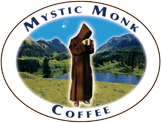Your Cart is Empty
This has been my go to coffee for several years now. I grind it fresh every other day keeping it in a glass jar until brewing. Very smooth, not bitter I am no longer a "sweetened creamer required
gal" because it is SO GOOD !!
The Irish cream coffee has a wonderful coffee flavor with just a hint of Irish cream. I usually don’t like “flavored “ things but this Irish cream coffee was perfect, not overdone. Thank you 🙏🏻
It is easy to appreciate this coffee bean, as well as how it is so carefully roasted to bring out its unique flavor. My hubby and I both love it.
The aroma is amazing and the taste is perfect. Just the right balance of flavors. One of my new favorites.
I normally do not like favored coffee but I have to say this one is very good! It smells like it has whiskey in it and there is an undertone of whiskey flavor that I find intriguing.

